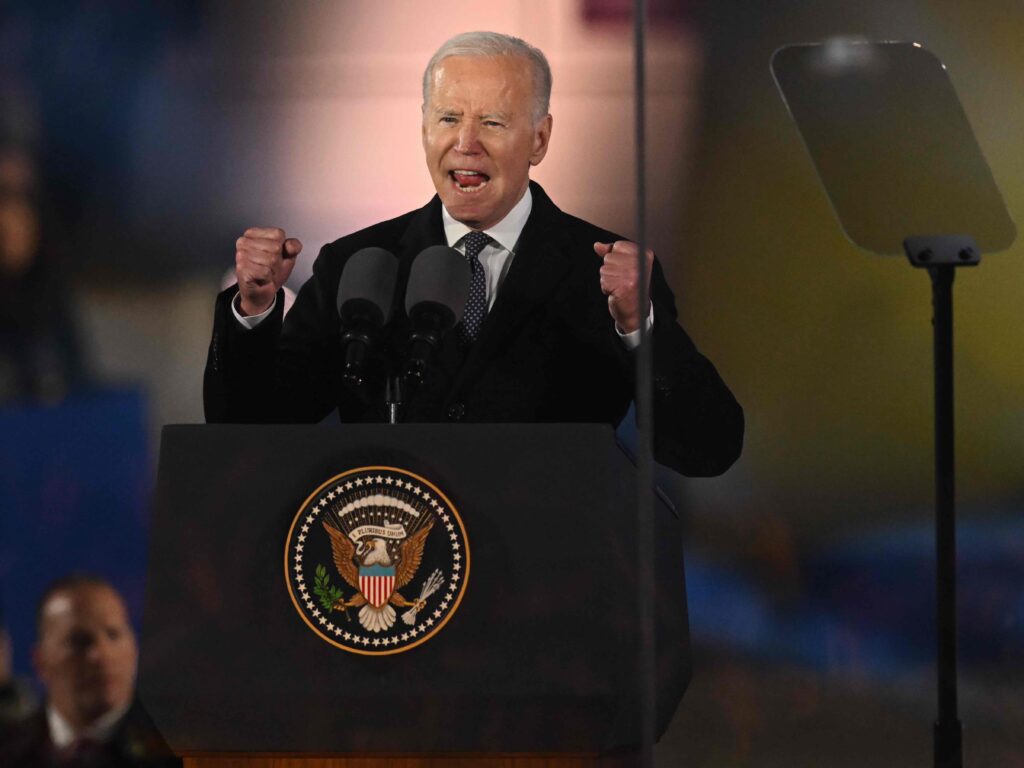
Nearly 60 percent of registered U.S. voters say they have “less money in their pocket than they did a year ago,” according to a Fox News poll released on Sunday.
Fifty-seven percent say they have less money to spend than last year, compared to 50 percent who felt that way in February of 2022. In 2018, only 28 percent of registered voters reported having less money in their pockets.
“Those feeling hardest hit include Republican women (78% less money now), rural Whites (69%), Gen Xers (63%), and voters with annual income below $50,000 (62%),” according to the poll report.
Twelve percent of poll respondents say they have more money to spend, and 31 percent say they have the same amount as the year prior.

U.S. President Joe Biden is speaking during his visit on February 21, 2023, in Warsaw, Poland. He previously made a surprise trip to Kiev, Ukraine, on February 20 to reaffirm U.S. support for Ukraine almost a year after the large-scale Russian invasion. (Photo by Mateusz Slodkowski/DeFodi Images via Getty Images)
A strong majority (62 percent) disapprove of how President Joe Biden is handling the economy, and 66 percent disapprove of how he is handling inflation. Nearly 80 percent of voters say the economy is in fair or poor condition, which is mostly unchanged from last year, according to the poll report.
The economy remains voters’ top issue, with 36 percent saying it is the most important problem the country is facing. The economy is notably the top issue among Democrats, Republicans, and independents.
“While that 36% is down from 42% in December, it still far outdistances the next highest priorities of immigration/border security (13%), climate (10%), and guns (9%),” according to the report.
The poll was conducted between February 19-22, 2023, by Beacon Research (D) and Shaw & Company Research (R) with 1,006 registered voters nationwide. The margin of sampling error is ±3 percentage points.





